Poptropica
Launched back in 2007, Poptropica was originally designed to engage younger audiences in lighthearted adventures across themed islands. Fast-forward to today, and it’s a nostalgic browser-based title that still has a surprising amount of pull—especially for gamers who appreciate creativity, simplicity, and puzzle-solving over high-octane action. While many other childhood classics have faded into obscurity, Poptropica has quietly endured, thanks in part to its free access model, evolving island content, and a loyal fanbase that continues to keep the game alive through forums, mods, and community guides.
But how does it really hold up now, in an era dominated by ultra-realistic open worlds and competitive online titles? After revisiting the game across several platforms, I was struck by its charm and versatility. While certainly no graphical powerhouse, Poptropica succeeds where it counts: in imaginative world-building, accessible gameplay, and an unpretentious approach to storytelling and exploration.
Gameplay: Simple Controls, Smart Design
Poptropica blends point-and-click exploration with light platforming. You hop between islands, each offering its own storyline, quests, and puzzles. Whether you’re solving a mystery on Spy Island or navigating the time-bending Chrono Island, every adventure presents a different theme and set of mechanics, keeping the experience from feeling repetitive. The controls are straightforward—you move with the keyboard and interact with your environment using the mouse—which makes it especially easy for casual players or younger gamers to pick up and play without needing a tutorial.
There’s no pressure here: no combat fatigue, no high-stakes decision trees. Instead, Poptropica encourages curiosity and experimentation. You might be helping an NPC uncover a secret passage one minute and customizing your avatar with a new outfit the next. The pace is mellow, but the puzzles offer just enough challenge to keep things interesting.
Visuals and Sound: Minimalist but Iconic
The aesthetic hasn’t changed dramatically since the early days—flat, cartoonish art and smooth animations define the visual style. While that might sound like a limitation, it’s actually one of the game’s strengths. The islands are full of personality, and the simplicity of the visuals makes them instantly recognizable. The audio is similarly restrained, with subtle sound effects and looping music tracks that don’t overwhelm the experience but do enhance immersion where needed.
Community and Customization
Poptropica may be aimed at a younger crowd, but its fan community is far from juvenile. Longtime players have created forums, wiki pages, and even unofficial mods to improve or alter aspects of the game. While official support for cheats and mods is minimal, third-party tools and browser extensions offer limited customizations like teleportation or cosmetic tweaks. There’s also an in-game currency system, allowing players to buy costumes and accessories, although many customization options remain free.
Accessibility and Cross-Platform Play
One of the game’s strongest advantages in 2025 is its accessibility. You can play Poptropica for free in your browser without needing to install anything, though mobile apps are available for iOS and Android. The download and install processes are lightweight, and cloud save support means you can jump between devices without losing progress. For players looking to experience it on PC or Mac, browser access remains the most straightforward route. Unfortunately, there’s no native app for consoles or Linux, but emulator options do exist for those inclined to tinker.
Interestingly, Poptropica remains one of the more popular unblocked games in school and office settings. Its educational tone and absence of violent content make it an easy win for those looking to sneak in a few minutes during downtime. That alone explains why it still enjoys high traffic in filtered networks where other titles are inaccessible.
Final Verdict
Poptropica isn’t going to win any awards for innovation in 2025, but that’s beside the point. It delivers exactly what it promises: a safe, accessible, and imaginative experience that encourages exploration and creative thinking. Whether you’re reliving memories or introducing a new generation to browser-based gaming, there’s genuine value here. For a game that’s been around nearly two decades, Poptropica still knows how to play to its strengths. And best of all, it continues to invite players to jump in without spending a dime—or needing to download anything at all.
How to download and install Poptropica
You can play Poptropica directly through your browser on the official website, completely free. It’s also available on iOS and Android as a mobile app, which can be downloaded from the App Store or Google Play. While the browser version doesn’t require installation, the mobile versions can be installed in just a few taps.
Poptropica is compatible with Windows, macOS, Android, and iOS. It’s not natively supported on Linux or consoles, but users can try cloud gaming platforms or Android emulators to access it.
To install on mobile, search for Poptropica in your device’s app store and tap “install.” No account is needed to start playing, although creating one enables progress saving across devices.
System requirements are minimal: for PC and Mac, any modern browser will do; for Android, version 5.0 and up is recommended; iOS devices should run version 11.0 or later.
While official cheats or mods are not offered, players can find browser-based enhancements or fan-made tools. Use at your own discretion, as these are not supported by the game’s developers.
Poptropica remains accessible in most restricted environments and is one of the more reliable unblocked games for school or office play.
Pros
- Play for free with no mandatory purchases
- Engaging island stories with unique themes
- Simple controls make it easy to pick up
- Safe and child-friendly environment
- Available across multiple platforms including mobile and browser
- Community-driven content, guides, and forums add depth
- Runs smoothly on older systems
- Supports unblocked access in schools and restricted networks
- Lightweight install with minimal system requirements
- Frequent seasonal updates and island rotations
Cons
- Limited visual updates in recent years
- Lack of native support for consoles and Linux
- Some islands require membership or premium content to access
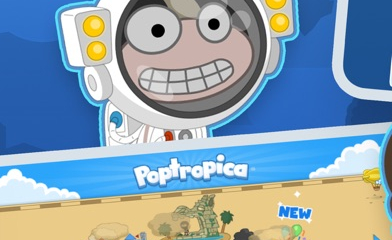

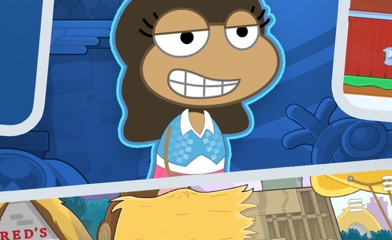






















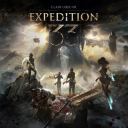
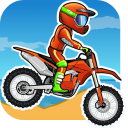

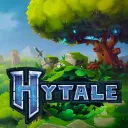
Leave a comment
Your comment is awaiting moderation. We save your draft here
0 Comments